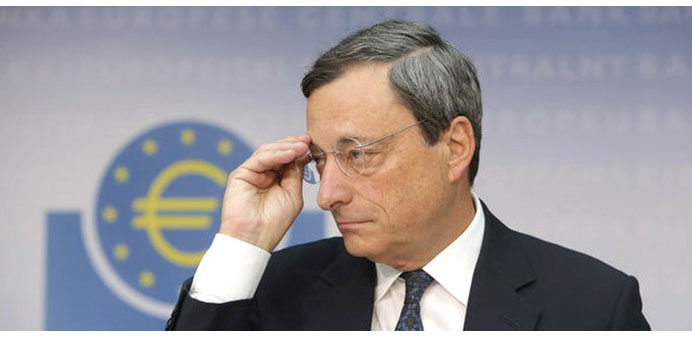Reuters
|
|
ECB President Mario Draghi (pictured) has kicked back a proposal from advisers to change the way sovereign debt is risk-weighted and asked them to do some more work on it, German weekly news magazine Spiegel reported.
The eurozone’s sovereign debt crisis has highlighted the dangers of banks buying government bonds as a theoretically safe buffer against risky investments, particularly since holders of Greek bonds took a hit in the country’s bailout.
The European Central Bank is due to run a series of checks on banks’ balance sheets before taking up its role as the eurozone’s banking supervisor in November 2014, and Spiegel quoted central bank sources as saying they were worried that having a debate about the current system of financing governments would be untimely.
The measures suggested by the advisers could have a big impact on how crisis-stricken states finance themselves in the future, the magazine said yesterday.
The ECB declined to comment on the report when contacted by Reuters.
Members of the European Systemic Risk Board, an ECB-linked body that monitors potential economic problems, made a series of suggestions such as bundling together the risks from European banks’ large investments in their national government’s bonds, the magazine said.
They were quoted as saying such risks should be treated like corporate debt in the medium term, so that banks can only hold a certain amount of such risks or must back them up with capital in their balance sheets.
But Draghi handed the recommendations back to the advisers “for revision”, according to Spiegel.
ECB Governing Council member Jens Weidmann, who is also head of Germany’s Bundesbank, has said banks’ sovereign debt holdings should over the medium term be treated the same way as corporate bonds, which are not treated as a risk-free asset.

